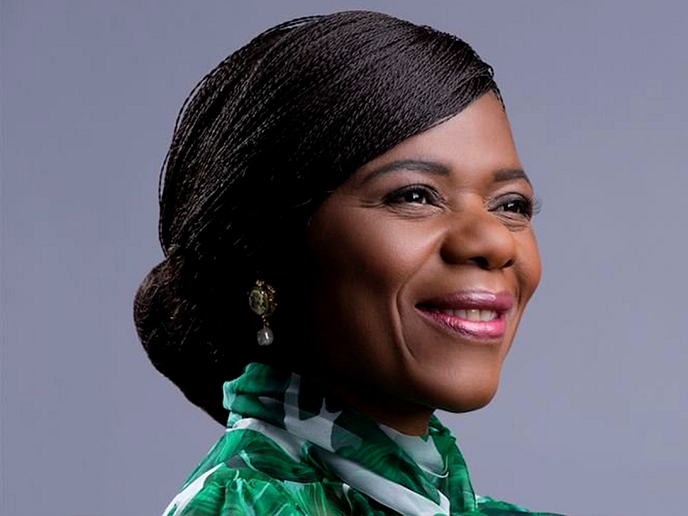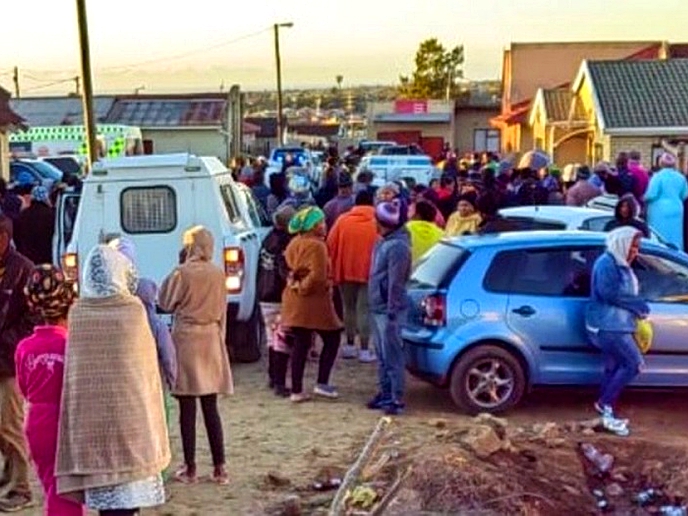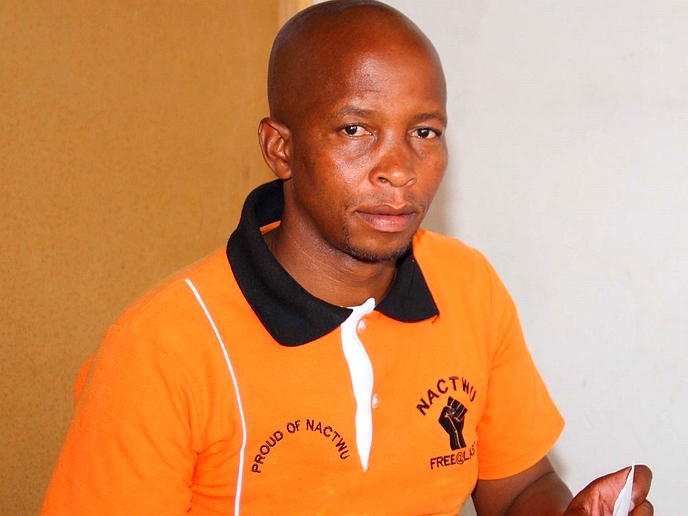CAPE TOWN - ZANZILE Christmas Mafe who is accused of setting the South African Parliament on fire is expected to reappear in the Cape Town Magistrate’s Court on January 11 on five charges including arson and possession of an explosive device.
africa
Jan. 7, 2022
OWN CORRESPONDENT
7 min read
Suspect denies torching SA parliament
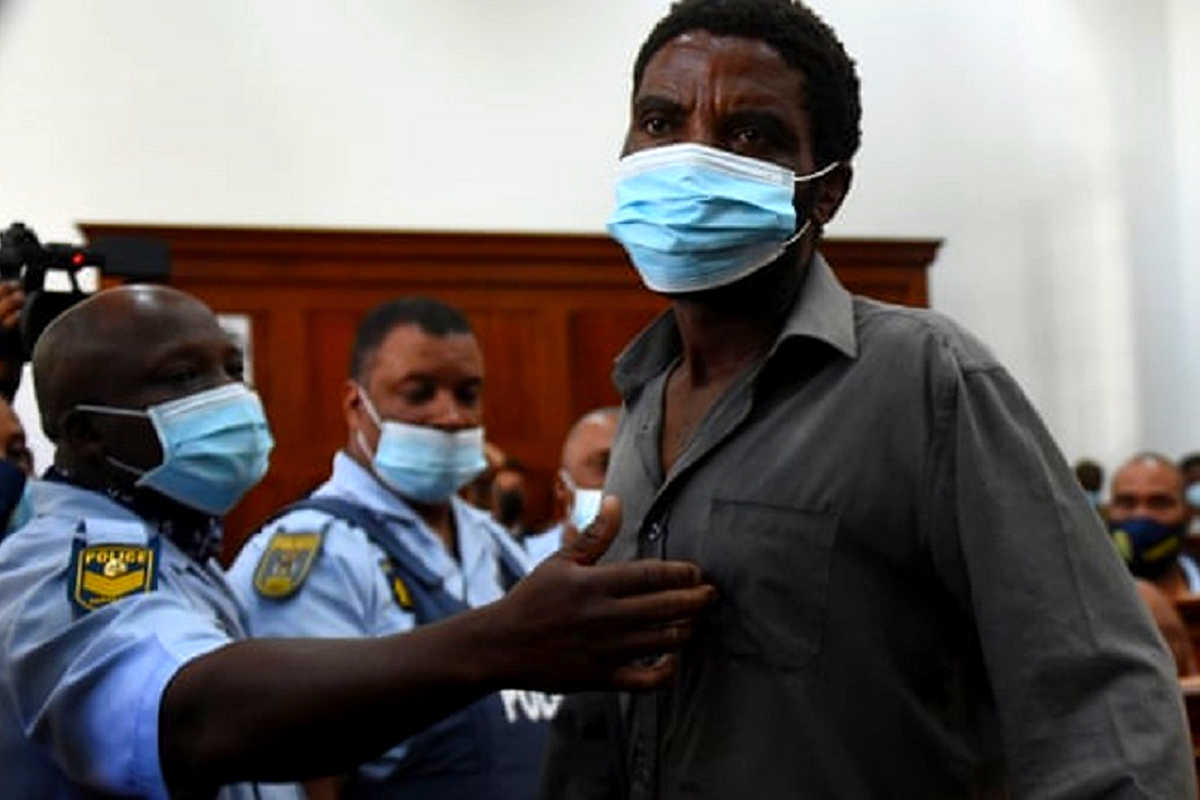
The suspected arsonist, Zanzile Mafe in court
Story highlights
A lawyer for the 49-year-old suspect said on Tuesday that he denied the accusations and would plead not guilty.
Officials have said important sections including a museum with artworks and heritage objects were saved from the blaze, as was an embroidered tapestry telling the story of the Eastern Cape on the ground floor of the Old Assembly Building. The elite Hawks police unit said on Monday the suspect was believed to have gained entry to the Parliament through an office window.
Former neighbours of the suspect were shocked. His lawyer said the Government was rushing to find a scapegoat.
Police said they spotted and arrested Mr Mafe at the Parliament complex in Cape Town shortly after the fire was reported on Sunday.
Prosecutors said he was caught with stolen laptops, documents and crockery. He was also charged with breaking state security laws, because the Parliament buildings are a site of national strategic importance.
The sudden destruction of historic buildings that housed the National Assembly, and the offices of lawmakers, the governing African National Congress party and several opposition parties, has set off widespread confusion and speculation in a politically divided country.
South Africa is still on edge after a wave of rioting last July, which resulted in the deaths of more than 300 people.
Image
On short notice, members of Parliament held a virtual meeting for more than three and a half hours on Tuesday, where lawmakers echoed concerns raised by the public: Were maintenance and safety protocols in the buildings too lax? Did the sprinklers fail? Why has the Parliament’s Protection Services been left without a permanent head since 2015?
And have police and prosecutors found the actual culprit?
“Why would a ‘vagrant’ wakeup and burn down parliament?” tweeted Fekile Mbalula, the Minister of Transport and a senior member of the ruling ANC.
The Speaker of Parliament, Nosiviwe Mapisa Nqakula, said she believed the fire was no accident.
Mr Mafe appeared only briefly in a packed Cape Town Magistrate’s Court, not far from the gutted parliamentary complex in the city center, disheveled in a faded long-sleeved gray shirt with denim shorts and dirty sneakers.
Standing behind a thick plastic screen, in place for pandemic regulations, he lowered his mask, allowing reporters to see his face.
He did not enter a plea, although his lawyer, Luvuyo Godla, said he planned to plead not guilty. He remains in custody, and prosecutors have opposed bail, citing the severity of the charges.
Mr Godla said his client denied setting the fire or carrying an explosive device, and accused the government of scapegoating a poor man to find a suspect quickly and distract from its own failure to protect its buildings.
“What interest would that poor man have in Parliament?” Mr Godla asked, speaking to reporters on the steps of the court.
Prosecutors, however, say that they are certain they have the right man.
“He’s got a case to answer for,” Eric Ntabazalila, a spokesman for the National Prosecuting Authority (NPA), said in a telephone interview.
He said that more charges were likely to be filed by the next court appearance.
Inside the small, corrugated iron shack where Mr Mafe lives in the township of Khayelitsha, 20 miles southeast of Cape Town’s city center, neighbours said the television, satellite dish and refrigerator he owned had raised suspicion.
“He had things that people in the area who work don’t have,” said Patrick Nkwela. “How do you explain that?”
Several neighbours said Mr Mafe had only moved into the area in August of 2021. He lived alone and seemed to know no one. He could also always afford alcohol, they said, which he drank alone.
He did not work but never missed his rent, said Wendy Luhabe, his next-door neighbour.
In Langa, a township in Cape Town where Mr Mafe had lived for five years before moving to Khayelitsha, neighbours had a different impression of him and were surprised that he was accused of having anything to do with the Parliament fire.
They remember Mr Mafe as respectful and timid. They called him by his middle name, Christmas, or just Chris. He liked to talk about current affairs and decried corruption, but never in a way that felt threatening.
A friend, Doreen Lekoma, said he’d worked for a bread factory but had lost that job earlier in 2021.
When she bumped into him in July, she said, he looked disheveled, and was carrying an ironing board and other belongings. She said she had seen him again on Dec. 26, and he had looked hungry and confused, so she gave him a meal.
His former girlfriend, Mbinde Andoni, said she last saw him on Christmas Day. The next time she saw him was in news footage from court, and she was shocked to see he was wearing the same gray shirt and denim shorts.
“He was clearly sleeping on streets. How would he know how to get into Parliament, what important areas and documents to burn? It doesn’t add up,” said Ms Andoni.
As South Africans watched smoke billow from the entrance of the National Assembly, its chambers gutted and roof collapsed, the sense of unease from the July unrest returned.
“The trust deficit between South African citizens and the Government is just yawning at this point,” said Ziyanda Stuurman, an independent security analyst and a former researcher at Parliament.
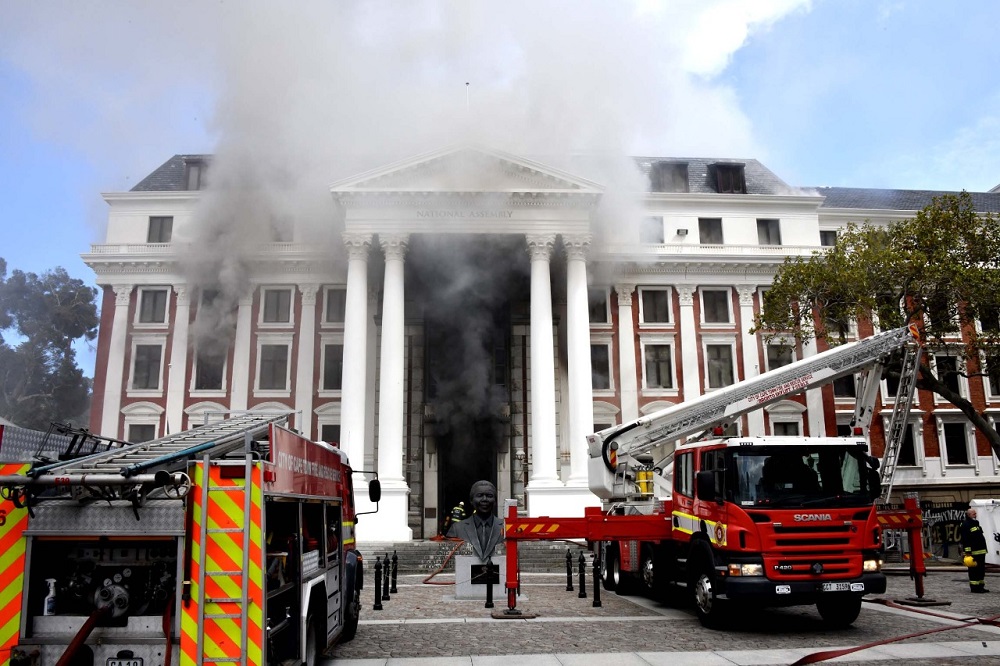
Fire ravages the South African Parliament
Enjoy our daily newsletter from today
Access exclusive newsletters, along with previews of new media releases.

The state has yet to provide a “satisfactory answer” about the July unrest, and yet again, politicians are seen to be deflecting questions about security, instead of winning public confidence, she added.
Opposition politicians raised questions about why the sprinkler system reportedly kicked in only after firefighters had arrived on the scene. Former SA parliamentarian belonging to a faction aligned with the President Jacob Zuma, demanded to see security camera evidence of the suspect entering Parliament, and circulated an image said to be Mr Mafe, in the same clothes he wore in court, asleep on a Cape Town pavement.
Others questioned the timing of the fire — just days before the President and Parliament were to receive the first part of a report of a large-scale commission looking into corruption under the Government of Mr Zuma. On Tuesday, President Cyril Ramaphosa, Mr Zuma’s former deputy and now rival, received the first part of the report and made it public.
The fire decimated the interior of a complex made up of three conjoined buildings built between the 1880s and expanded more than a century later, spanning the country’s transition from colony to apartheid regime to constitutional democracy.
More than 60 firefighters battled the blaze, supported by crew from South Africa’s Air Force. At one point, the wind was so strong that firefighters pulled what one official called “death-defying Spider-Man moves,” climbing up the side of the building to prevent the fire from sweeping into Tuynhuys, the official office of the President. The Guardian/The New York Times
Tailored for you



